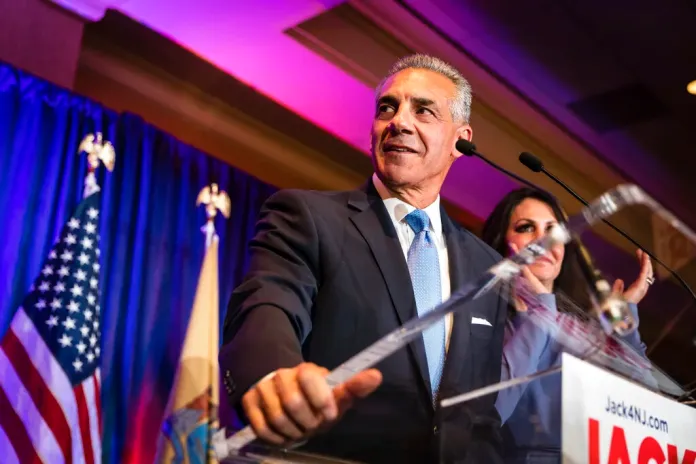EXCLUSIVE — The Republican State Leadership Committee, the official GOP committee tasked with winning state and local elections, will deploy a new get-out-the-vote strategy in Pennsylvania, Michigan, and other key states ahead of the 2026 midterm elections, the Washington Examiner learned.
Key to the GOP’s local strategy is combating a decline in voter turnout from 2024’s presidential election, bucking a trend that historically occurs during midterm cycles. To accomplish this, the RSLC intends to identify low-propensity voters early and engage with them consistently on “hyperlocal” kitchen table issues using paid canvassers in an effort to build trust and get them out to the polls come Election Day 2026.
The RSLC memo, obtained by the Washington Examiner, also said the group will distribute “multi-lingual” campaign materials, a clue that the GOP hopes to solidify its 2024 gains among Hispanics and other immigrant-heavy demographics.
“Republicans have become the party of low-propensity voters,” the memo said. “Many of our strongest supporters — primarily working-class, rural, and non-college-educated Americans — are deeply aligned with our values and priorities. However, there is a critical challenge when it comes to turning them out: these voters often only show up at the polls when Donald Trump is on the ballot.”
Indeed, college-educated voters, who are significantly more likely than the general population to vote in midterm elections, have shifted considerably toward the Democratic Party over the past decade. Virginia and New Jersey, two states the RSLC identified among its targets for 2026, have among the highest percentages of college-educated residents in the country. Despite this, the duo of traditionally blue states has moved to the right over the past few election cycles, emboldening some Republicans.
The RSLC has already begun its get-out-the-vote work in Virginia and New Jersey, spending millions of dollars on its campaign in the two states. Beginning January 2026, the RSLC will start collecting data to expand the voter mobilization campaign to states including Pennsylvania, Michigan, Minnesota, and Wisconsin during the first quarter of that year.

President Donald Trump used a similar get-out-the-vote strategy during his successful 2024 campaign, targeting and engaging with low-propensity voters on a more personal level. Though detractors at the time criticized the move as an unproven gamble, analyses conducted after Election Day 2024 showed that low-propensity voters were key to his victory.
The RSLC is taking a similar approach to the 2024 Trump campaign.
Rather than knocking on doors and distributing generic campaign literature, the RSLC will instruct its canvassers to engage in “high-quality, personal conversations, tailored to local issues” with potential voters who don’t usually participate in midterm elections.
The RSLC’s strategy also diverges from the GOP’s 2024 playbook in key ways.
The organization’s approach, according to the memo, will deliberately stay away from the national news cycle, a strategy common among Democratic and Republican campaigns in contested territories.
JOHN SUNUNU WEIGHING COMEBACK SENATE RUN IN NEW HAMPSHIRE
A key pillar of the RSLC’s strategy is getting in the game early to establish candidate name recognition, local credibility, and trust among voters. According to the memo, the RSLC is doing this to “get out ahead of the flood of Democrat spending that we traditionally see in the fall of an even-year election.”
Democrats have historically outspent Republicans in key state races. The spending gap, which the RSLC plans to counter through early and sustained action, could prove problematic as the GOP faces uphill, but winnable, battles in Virginia and New Jersey.
